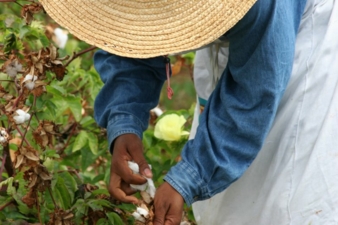15/12/2022 – Research — auf Deutsch lesen
Novel pest management tool for cotton production
The development of new targeted agricultural pest management technologies could reduce crop losses and production costs, while improving environmental safety.
The Department of Entomology at Texas A&M AgriLife, U.S. Department of Agriculture National Institute of Food and Agriculture, and Cotton Incorporated are working on a collaborative three-year project to research novel pest management tools for cotton production. A major goal of this project is to develop new targeted agricultural pest management technologies that reduce crop losses and production costs, while improving environmental safety.
The project led by Texas A&M AgriLife Research scientist Greg Sword will focus on enhancing cotton plant resistance to insect pests. Titled ‘Modifying Terpene Biosynthesis in Cotton to Enhance Insect Resistance Using a Transgene-free CRISPR-Cas9 Approach’, the approach of the scientist will focus on using cutting-edge genome-editing technology to create cotton plants with modified production of ecologically important defense compounds called terpenoids. The goal is to silence genes in cotton that produce monoterpenes, the chemicals that produce an odor pest insects home in on. By removing odors that pests associate with a good place to feed and reproduce, scientists believe they can reduce infestations, which will in turn reduce pesticide use and improve profitability.
Bremen Cotton Exchange – Issue 45-46/2022, Bremen Cotton Report




